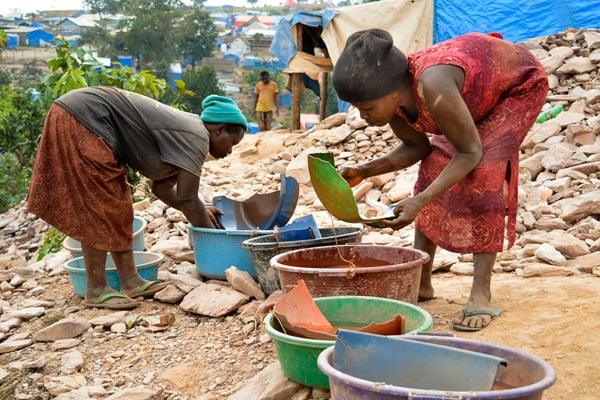A personal opinion on child marriage

Teenage mothers. PHOTO | FILE
What you need to know:
- In accordance with the children’s Human Rights Instruments, child marriage is any form of union in which one or both partners are under age as per the legal framework.
Child marriage is an abuse of human rights and also a form of gender discrimination for any child involved. It is often referred to as ‘early’ or ‘forced’ marriage, because children at this age have no capacity to make any informed decision concerning the marriage.
This practice deprives children of their fundamental human rights, that is to say, right to education, right to health and many other freedoms needed for the full development of a child, hence threatening their social, political and economic future prospects.
In accordance with the children’s Human Rights Instruments, child marriage is any form of union in which one or both partners are under age as per the legal framework.
In Uganda, the national statistics indicate that 34 percent of girls and 15.6 percent of boys are married off before their 18th birthday. This, clearly, reveals that the vice is an issue for both boys and girls, but it disproportionately affects girls, the number of girls married as children is astounding.
In accordance to the Children’s Human Rights Instruments, child marriage is any form of union in which one or both partners are of under age as per the legal framework. In Uganda, the national statistics indicate that 34 percent of girls and 15.6 percent of boys are married off before their 18th birthday.
This clearly reveals that the vice is an issue to both boys and girls, but it disproportionately affects girls, the number of girls married as children is astounding.
To a girl child, the practice simply means that she has to drop out of school and has no possibility to learn skills which could lift her out of poverty and dependence. It also means that she will forever be powerless to negotiate issues in her own interest.
Child marriage is driven by a number of factors, that is to say, social perception which regards teenage pregnancy as an embarrassment to families, so parents choose to give in their pregnant daughters into marriage to save a family from shame.
The practice is also deeply rooted in unequal power relations which results into subjugation of girls and women. In addition, poverty also appears to be a driver of child marriage, it belittles a girl child to mere property to be exchanged for simple economic gains.
Therefore, child marriage acts as a strategy for economic survival. All these are heart-breaking and yet society seems to be in slumber, why is society so harmful to itself and when shall we end this primitive reasoning?
To date, there are no known positive effects of child marriage. On the contrary, child marriage has negative impacts on the individual, community, and nation as a whole, that is to say, the practice threatens the economic prospects of girls, this is because childbirth, nurturing and home management leave them with little time to engage in meaningful economic activities hence leading to a cycle of vicious poverty. Further, education opportunities for career and vocational advancement are also compromised.
It’s my personal opinion that we need to wake up and invest in girls’ education, we must ensure that girls are in school, they feel free and safe in school, and also re-enroll those whose progress have been derailed. This should be accompanied by a comprehensive sexual education for the adolescents. Education contributes to women and girls’ social stability and also drives the nation’s economic growth, it is also capable of increasing women’s earnings, improving girls’ rationality in a way that they can make informed decisions on whom and when to marry.
I also suggest that there should be assistance for girls who want to leave a marriage, and would wish to get back in school. The government should enact a law or adopt a policy that supports children who are stranded in forced marriages to get back into school, marriage can wait. Legislators here have an important role to play, they can be key players in ending this practice. They, therefore, should take the lead in developing policies, allocation of resources, monitoring its implementation and also giving accountability.
We also need to economically invest in girls and their families. In this, we should put our focus on poverty as a cross-cutting issue that impacts both individuals and households; this will enable girls to contribute financially to their families through work rather than marriage hence increasing their value and autonomy in the community.
Mildred Loy Nandera, [email protected]




